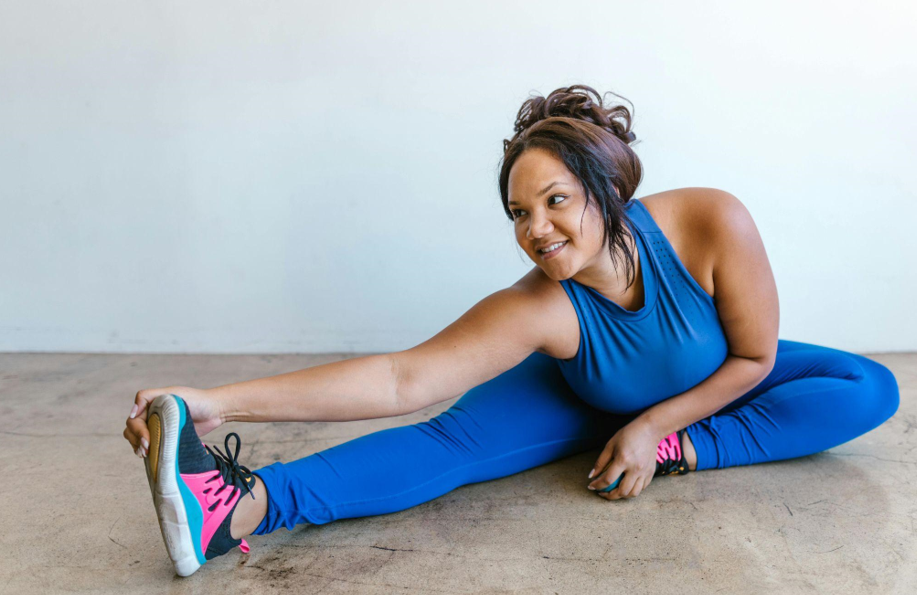How to Start Working Out Again
How to Start Working Out Again

Life can sometimes put our fitness goals on hold. Whether it's a busy schedule, a change in routine, or simply a lack of motivation, getting back into the gym after a break can feel tricky. But here's the good news: it's never too late to reignite your fitness journey!
Read on as we guide you through the process of starting over, help you overcome common hurdles, and set you up for success.
Conquer the Mental Hurdles
The first step is acknowledging the mental challenges holding you back. It's common to feel intimidated, especially if you're returning after a long break. Here are a few ways to overcome these hurdles:
Reframing Your Mindset
The first step is acknowledging the mental challenges holding you back. Instead of viewing exercise as a chore, focus on the positive aspects. Regular physical activity boosts energy levels, improves mood through endorphin release, and strengthens your body, making you feel confident.
Taking Control with Small Steps
Respecting your body's limitations is important. Begin with manageable workouts and gradually increase intensity as you regain fitness.
Set SMART goals (Specific, Measurable, Achievable, Relevant, and Time-bound) to track progress and celebrate milestones, no matter how small. Reward yourself with non-food incentives like a massage or a new workout outfit to reinforce positive behavior.
Finding Your Support System
Consider finding an exercise buddy to keep you motivated. Knowing someone relies on you to show up can be a powerful incentive to stick with your fitness plan They can provide encouragement, promote healthy competition, and add a social element to your routine.
Embrace Imperfections
Focus on progress, not perfection. There will be setbacks and missed workouts along the way. The key is to get back on track when you slip up and avoid letting setbacks derail your progress.
Visualize Success
Take a moment daily to imagine yourself achieving those fitness milestones you've set. Imagine yourself feeling stronger and more energetic and accomplishing your desired results. Visualization can be a powerful tool for motivation and positive reinforcement.
Listen to Your Body
Respecting your body's limitations is important to avoid injuries and burnout. Here's what to keep in mind:
Consult Your Doctor
Schedule a checkup with your doctor before starting a new workout routine, especially if you haven't exercised in a while. A checkup is especially important if you have any pre-existing health conditions. A doctor's clearance ensures you're exercising safely and identifies any potential limitations you should know about.
Start Low and Gradually Increase the Intensity
Start with low-impact activities to ease your body back into exercise. This could involve brisk walking, swimming laps, gentle yoga, or tai chi. These activities are easier on your joints, allowing your body to prepare to exercise gradually. As your fitness improves, you can gradually increase the duration and intensity of your workouts to challenge yourself further.
Respect Your Body's Signals
Pain is your body's way of communicating something's wrong and a signal to slow down. Stop exercising immediately if you feel any pain to prevent potential injuries that could sideline you from your workout routine. Consult with your doctor to identify the source of the pain if it lingers and adjust your workout plan accordingly.
Listen to Your Energy Levels
Just like muscles, your energy reserves need time to recover. Pay attention to your body's fatigue cues. Schedule rest days when needed and adjust your workout intensity accordingly. Don't be afraid to take a break if you feel overly tired.
Craft a Personalized Workout Plan
A well-designed workout plan will keep you engaged and ensure that you target different muscle groups. Let's explore some ideas to help you build a plan that fits your needs:
- Consider Your Goals: Do you want to lose weight, gain muscle, or simply improve your overall fitness? Once you define your goals, choosing exercises that target those areas becomes much easier.
- Variety is Key: Your plan should include a mix of cardio activities, strength training, and flexibility exercises. This will keep things interesting and help you develop a well-rounded fitness base.
- Consider Your Time Constraints: Be realistic about how much time you can dedicate to exercise. If you're short on time, opt for high-intensity interval training (HIIT) workouts or shorter but more intense sessions.
- Seek Guidance from Professionals: Consider consulting with a certified personal trainer who can create a personalized plan tailored to your goals and fitness level. The Bayou Bend Fitness Center offers certified trainers to help you design a safe and effective program. The expert trainers there cater to all fitness levels, from beginners to seasoned athletes.
Make Fitness a Sustainable Habit
The key to reaping the long-term benefits of exercise is integrating it seamlessly into your lifestyle. Here's how to transform exercise from a chore into a sustainable habit you can enjoy for years to come:
Discover Your Exercise Passion
Choose activities you genuinely find fun. This could be anything from dancing to a Zumba class to exploring nature through hiking or the thrill of rock climbing. When exercise feels enjoyable, it becomes an activity you look forward to, not a burden you have to force yourself through.
Schedule Your Sweat Sessions
Treat your workouts like important appointments. Block out dedicated time in your calendar for exercise and prioritize it just like any other commitment. Scheduling increases your chances of following through, especially when life gets busy.
Make It Convenient
Remove barriers to exercise by making it accessible and convenient. Keep your workout clothes and gear readily available at home or work. If you prefer morning workouts, lay out your clothes the night before to eliminate the morning scramble. Short on time? Look for online workout videos or bodyweight exercises you can do at home. Alternatively, consider shorter but more intense sessions like high-intensity interval training (HIIT) workouts. The easier you make it to start, the more likely you are to stick with it in the long run.
Track Your Progress
Monitoring your progress is a powerful motivator. Utilize a fitness tracker, app, or a simple journal to record your workouts. Witnessing your improvement, no matter how small, can boost your confidence and keep you motivated. Celebrate milestones, like completing a longer run or lifting heavier weights, to maintain a sense of accomplishment.
Reward Yourself
Acknowledge your achievements with non-food rewards. After achieving a milestone, treat yourself to something like a spa day, a new pair of runners you've been eyeing, or a relaxing bath. This reinforces positive behavior and motivates you to continue your fitness journey.
Focus on Progress, Not Perfection
There will be setbacks along the way. You may miss a workout due to unforeseen circumstances or experience a temporary dip in motivation. Don't let these setbacks derail your progress. The key is to get back on track as soon as possible and remember that consistency, not perfection, is the key to long-term success.
Rekindle your love for fitness and reignite your well-being journey. The certified trainers at Bayou Bend Fitness Center can design a personalized plan to fit your goals and get you moving safely and effectively. Together, let's create a sustainable routine that fits your lifestyle and empowers you to achieve lasting results. Don't wait any longer; contact us today and take the first step towards a healthier, happier you!



